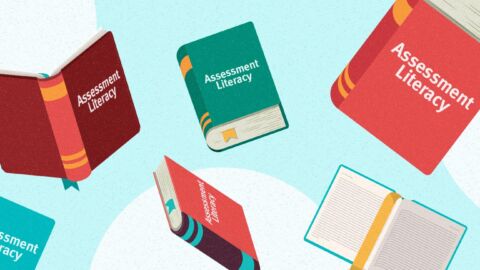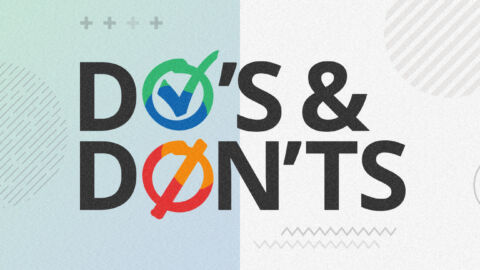
Bringing a Fresh Perspective to Assessment Purpose
Two California school districts conducted reviews of their required assessments. In the second of a two-part series, we share what they learned.
Read More
Two California school districts conducted reviews of their required assessments. In the second of a two-part series, we share what they learned.
Read More
Two California school districts conducted reviews of their required assessments. In the first of a two-part series, we share what they learned.
Read More
The concept of “strategic abandonment” sheds light on the appropriate uses of commercial interim assessments. Instructional utility isn’t one of them.
Read More
Shifting from an accountability mindset to reciprocal responsibility could transform the way schools, districts and states work toward improvement.
Read More
An important new book from the National Academy of Education can support state and district leaders in building balanced assessment systems.
Read More
Choosing local assessments can be tricky. A new guide walks district leaders through the questions they should ask and the evidence they should request.
Read More
There is a science behind reading instruction that must be followed to ensure reading comprehension goes beyond just the foundational skills.
Read More
Misconceptions about grading exist because a 100-point grading scale doesn’t exist, argues Scott Marion in his latest post.
Read More
Developing Needs-Based Sociocultural Approaches to Professional Development and Assessment Literacy This post is a summary of the main ideas from a symposium focused on educators’ assessment literacy presented at the […]
Read More
Poor Grading Practices Lead to Negative Consequences The recent controversy over the awarding of the valedictorian and salutatorian at West Point High School in Mississippi highlighted long-documented problems with grading […]
Read More
What We Can Learn About Both Student Engagement and Grading Systems from Current Failure Rates EducationWeek recently printed a terrific summary by Stephen Sawchuk about the number of students receiving failing grades […]
Read More
When Mary Ann Snider and I wrote in late April, “We can seize this opportunity to create assessment experiences that require students to think deeply and to demonstrate that deep thinking,” we […]
Read More
Educators Need Clear Descriptions of the Intended Uses and Interpretations of Educational Assessments Educational assessment has a naming problem and the latest example of it is the current rhetoric regarding […]
Read More
Evaluating Interim Assessments Against the Criteria for Balanced Assessment Systems Interim assessments may have a role in balanced assessment systems, but that role is not conferred by title. It is […]
Read More
Reflections From the 2019 Reidy Interactive Lecture Series (RILS) Conference In the seacoast region of New Hampshire, we are enjoying the kind of crisp early autumn temps that might call […]
Read More
Introduction to the Interim Assessment Identification and Evaluation Process Tool This week, the Center team gathers in Portsmouth, New Hampshire with state and local educators, assessment specialists, industry leaders, and […]
Read More
Improving the Selection, Use, and Evaluation of Interim Assessments How do you select an interim assessment that will meet your specific goals and needs? What assessment characteristics are necessary […]
Read More
The Challenges and Opportunities of Balanced Systems of Assessment The seminal publication, Knowing What Students Know: The Science and Design of Educational Assessment (NRC, 2001), crystalized the call for balanced systems of […]
Read More